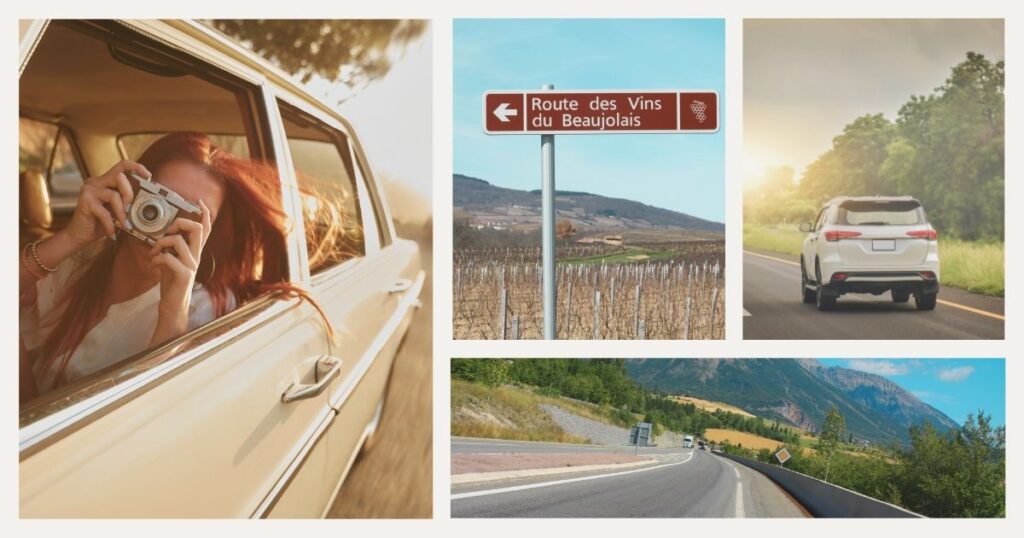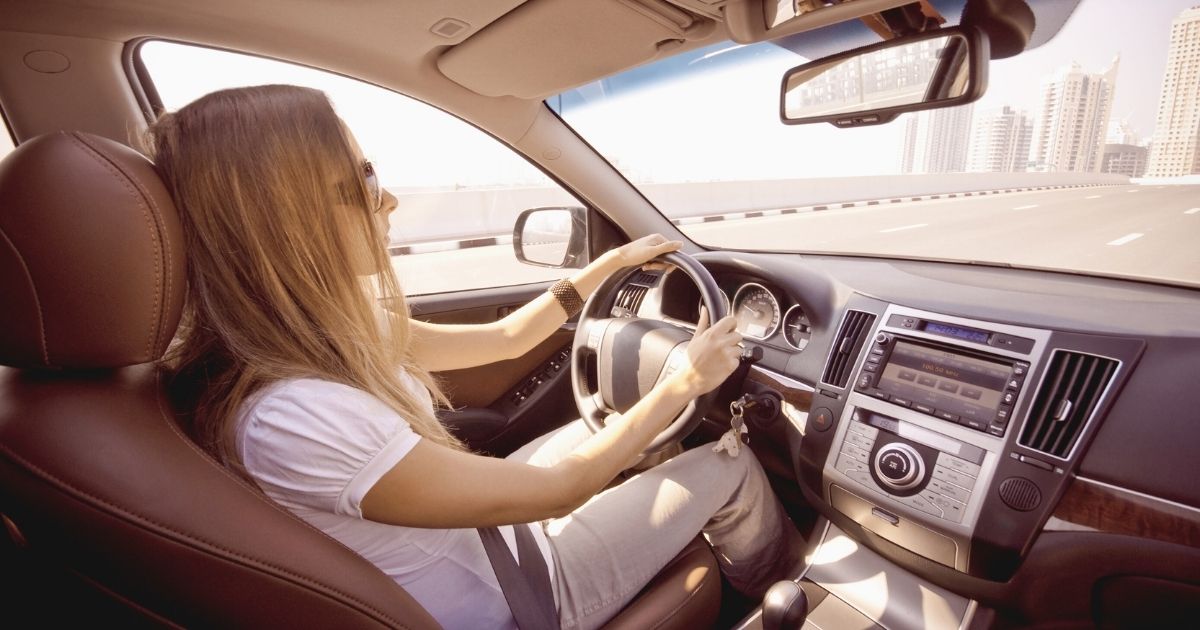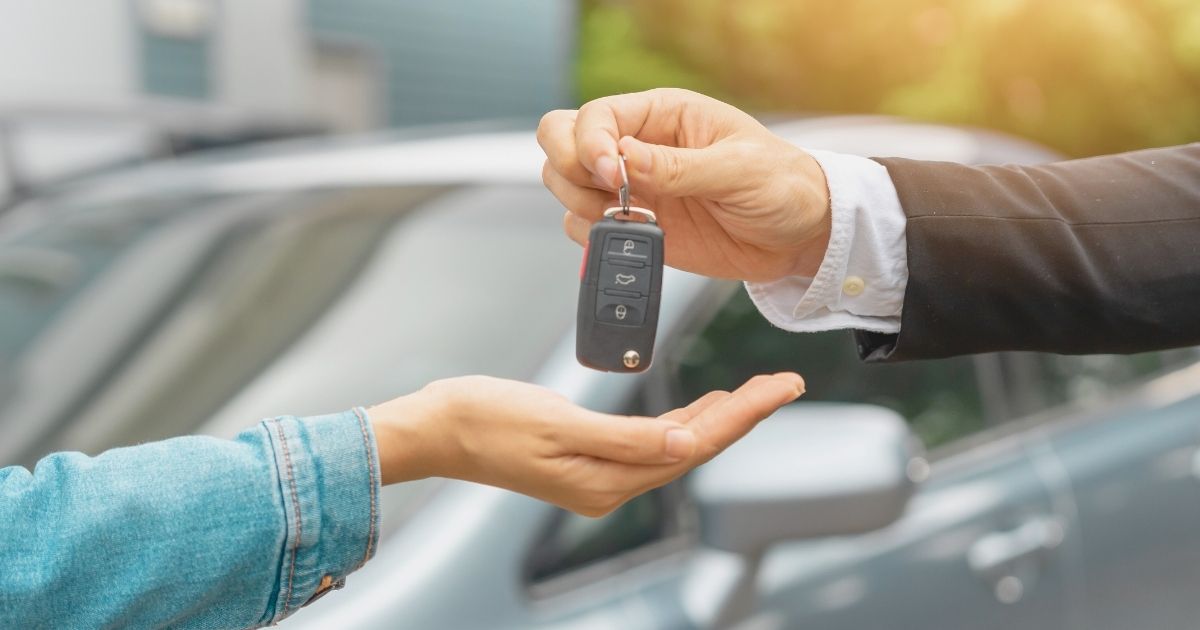Exploring France’s picturesque countryside and charming villages offers digital nomads an unparalleled opportunity to blend work and discovery. Beyond the major cities with their efficient public transport, much of France’s authentic charm lies in regions only accessible by car.
Understanding how to rent a car in France can transform your nomadic experience, opening doors to hidden workspaces, local connections, and breathtaking landscapes perfect for remote work inspiration. From navigating rental requirements to understanding road regulations, mastering car rental in France requires specific knowledge.
This comprehensive guide covers everything from documentation needs to money-saving strategies, helping you navigate how to rent a car in France with confidence and ease. From paperwork to road rules, we’ve got you covered for a smooth French driving experience while maintaining your digital productivity.
Understanding car rental requirements in France

Before booking your French wheels, it’s essential to understand the specific requirements that make renting a car in France different from other European countries. Most French car rental companies maintain strict documentation protocols and age requirements that can impact your rental experience.
Essential documentation
To successfully rent a car in France, you’ll need several crucial documents. First, a valid driver’s license from your home country is mandatory—France recognizes licenses from most countries for stays under one year. If your license isn’t in Latin characters (e.g., licenses in Arabic, Chinese, or Cyrillic), an International Driving Permit (IDP) becomes essential and must accompany your original license.
Additionally, most rental companies require a credit card in the main driver’s name with sufficient available credit for the security deposit (typically €800-1500). Debit cards are rarely accepted for the primary deposit, though some companies may allow them for final payment. Your passport serves as your primary identification, and many agencies also request proof of address, which can be your hotel reservation or temporary accommodation details.
🌟 Pro tip: have digital copies of all your documentation saved in cloud storage. This provides backup if physical documents are lost and helps expedite the process when booking online.
Age requirements and restrictions
Age restrictions represent one of the most important considerations when learning how to rent a car in France. The standard minimum age is 21, but many premium car categories require the driver to be at least 25 years old. Drivers under 25 typically incur a “young driver surcharge” ranging from €15-35 per day, significantly impacting your budget.
Maximum age restrictions exist with some companies as well, often capping rentals at 75 years. If you’re a senior digital nomad, verify age policies before booking. Additionally, most rental agreements require that you’ve held your license for at least one year, with premium vehicles sometimes requiring three or more years of driving experience.
💡 Did you know? French rental companies categorize cars differently than in North America. Their “economy” category (typically cars like the Renault Clio or Peugeot 208) is often smaller than what Americans consider compact, while offering exceptional fuel efficiency perfect for France’s narrow roads.
How to rent a car in France: step-by-step process

Renting a car in France follows a straightforward process once you understand the system and requirements. From choosing the right company to completing the necessary paperwork, each step requires attention to detail to ensure a smooth experience.
Comparing rental companies
France hosts numerous car rental companies ranging from international brands to local operators. Major players include Europcar, Avis, Hertz, and Sixt, all offering extensive networks and standardized services. Local companies like Rent A Car and ADA often provide competitive rates for budget-conscious nomads.
When comparing options, look beyond the base price. International brands typically offer English-speaking staff and more flexible pickup/drop-off options—valuable for digital nomads with changing schedules. Local companies might provide better rates but could have limited support in English and more restricted operating hours. Use comparison platforms like AutoEurope or Discovercars to evaluate multiple providers simultaneously, focusing on total costs including insurance and additional fees.
Reservation process and timing
The timing of your reservation significantly impacts how affordably you can secure a vehicle rental in France. For peak seasons (summer months, especially July-August, and holiday periods like Christmas and Easter), book at least 2-3 months in advance. Last-minute rentals during these periods can cost two to three times more than advance bookings.
The reservation process typically begins online, where you’ll select your pickup/return locations, dates, and preferred vehicle category. Most booking platforms require only basic information and a small deposit or no upfront payment. However, carefully review cancellation policies—they vary widely between companies, from free cancellation up to 48 hours before pickup to non-refundable bookings with substantial discounts. Learning how to rent a car in France efficiently is made easier with tools from Nomada that help digital professionals navigate foreign systems.
🌟 Pro tip: book your rental for weekly periods even if you need it for 5-6 days, as weekly rates often cost less than daily rates multiplied by 5 or 6 days. This is particularly true with major international rental companies in France.
Pickup procedures and inspections
When collecting your rental car in France, arrive at least 30 minutes before your scheduled pickup time with all required documentation. The agent will verify your license, passport, and credit card, then guide you through the rental agreement. Pay careful attention to insurance options, fuel policies, and mileage limitations before signing.
Before accepting the vehicle, conduct a thorough inspection and document any existing damage, no matter how minor. French rental companies are meticulous about damage assessment upon return. Photograph all scratches, dents, windshield chips, and interior issues, and ensure these are noted on your agreement. Check that all required safety equipment is present—French law mandates each vehicle contains a warning triangle and reflective vests.
French driving rules and rental insurance considerations

Understanding France’s driving regulations and insurance options is crucial for a stress-free car rental experience. Digital nomads should familiarize themselves with key rules and coverage options before hitting the French roads.
Essential driving regulations in France
France has several driving rules that may differ from your home country. The most fundamental: drive on the right side of the road, with overtaking on the left. Speed limits are strictly enforced through abundant speed cameras and vary by location: 50 km/h in urban areas, 80-90 km/h on rural roads, and 130 km/h on motorways (reduced to 110 km/h in rain).
France enforces a strict blood alcohol limit of 0.05%, lower than many countries, and mobile phone use while driving is prohibited unless using a hands-free system. All passengers must wear seatbelts, and children under 10 must use appropriate car seats. When navigating France’s numerous roundabouts (priorité à droite), remember that vehicles already in the roundabout have right of way.
Key equipment your rental should include (and you should verify before departing):
- Reflective vests for all passengers
- Warning triangle
- Breathalyzer/alcohol test
- Headlamp beam deflectors (for UK cars)
- Spare bulb kit
- First aid kit
Understanding rental insurance options
Navigating insurance options is one of the most complex aspects when figuring out how to rent a car in France properly. The baseline mandatory coverage is Third Party Liability Insurance (Responsabilité Civile), included in all rentals by law. However, this only covers damage to other vehicles and property, not your rental car.
Collision Damage Waiver (CDW) reduces your liability for damage to the rental vehicle but typically comes with an excess/deductible ranging from €800-2,000. Theft Protection (TP) works similarly for vehicle theft. For comprehensive protection, consider Super CDW (also called Zero Excess), which eliminates or substantially reduces the deductible amount. Glass, tire, and undercarriage damage often remain excluded even with premium coverage, requiring specific add-ons.
Your digital nomad lifestyle requires reliable connectivity even on France’s scenic routes. A travel eSIM for France from Holafly ensures you’ll maintain access to navigation apps, client communications, and emergency services throughout your journey, even in remote areas where public WiFi is nonexistent.
🌟 Pro tip: if you’re planning extensive driving through France as a digital nomad, verify whether your credit card offers rental car coverage before purchasing additional insurance. Many premium travel cards provide comprehensive coverage, potentially saving hundreds of euros on a multi-week rental.
Final thoughts on how to rent a car in France
Mastering the car rental process in France opens up extraordinary possibilities for digital nomads seeking authentic French experiences. From the lavender fields of Provence to the vineyard-dotted landscapes of Burgundy, a rental car transforms your ability to blend work and exploration in ways public transportation simply cannot match.
Remember that preparation makes all the difference—having the right documentation, understanding insurance requirements, and familiarizing yourself with local driving customs ensures your French road adventures remain stress-free. When analyzing how to rent a car in France effectively, the initial paperwork and research pay dividends in flexibility and discovery opportunities.
For digital nomads particularly, this mobility creates opportunities to establish temporary workspaces in charming villages, historic towns, and scenic locations that would otherwise remain inaccessible, enriching both your professional output and personal experience of France.
Looking for more insights on navigating France as a digital nomad? Explore our comprehensive guide to coworking spaces in France to find the perfect balance between your road adventures and productive workspace needs.
Your French mobility adventure awaits with Nomada as your companion 👉
Stay connected while you travel with Holafly’s eSIM 🌍
Getting ready for a trip and want to forget about roaming charges, physical SIM cards, or unreliable public WiFi? With Holafly’s eSIM, staying online in over 160 countries is easier than ever.
With Holafly, you’ll enjoy:
📲 Instant activation: just scan a QR code and you’ll have data at your destination.
🌐 Global coverage: available in 160+ countries, including top tourist spots and major business hubs.
📅 Flexible plans: choose daily, weekly, or monthly options based on your travel needs.
❌ No physical SIM required: keep your current SIM in place, no local procedures needed.
💬 Multilingual support: get fast, clear assistance whenever you need it.
Browse securely without relying on public networks, access maps, apps, bookings, and work remotely without interruptions.
Set it up once and easily pause or switch profiles as needed, saving battery and managing your data usage.
📵 Say goodbye to roaming fees and hello to a simple, secure connection—without surprises on your bill.
Does your phone support eSIM? Then Holafly is the perfect travel companion to stay connected wherever you go.
Frequently asked questions about how to rent a car in France
Yes, American licenses are valid for rentals in France for stays under one year. No International Driving Permit is required as US licenses use Latin characters, though some rental companies may request one anyway for ease of verification when you’re learning how to rent a car in France.
Book well in advance (2-3 months), choose weekly rather than daily rates, opt for manual transmission, and consider pickup locations outside airports or train stations where fees are higher. Loyalty programs and off-season rentals (November-March excluding holidays) offer additional savings.
While cash is accepted at manned toll booths, most French toll stations accept international credit/debit cards. Some rental companies offer toll transponders (Télépéage) for a fee, which allow seamless passage and automatic billing, ideal for extensive motorway travel.
Many French cities have established Low Emission Zones (ZFE) where certain vehicles are restricted. Paris, Lyon, and other major cities have implemented these zones, requiring environmental stickers (Crit’Air vignettes) which your rental company should provide.
Beyond the base rate, budget for potential one-way fees (€40-150), young/senior driver surcharges (€15-35 daily), additional driver fees (€10-15 daily), GPS rental (€10-15 daily), and premium location charges at airports/train stations (10-20% of total rental).




